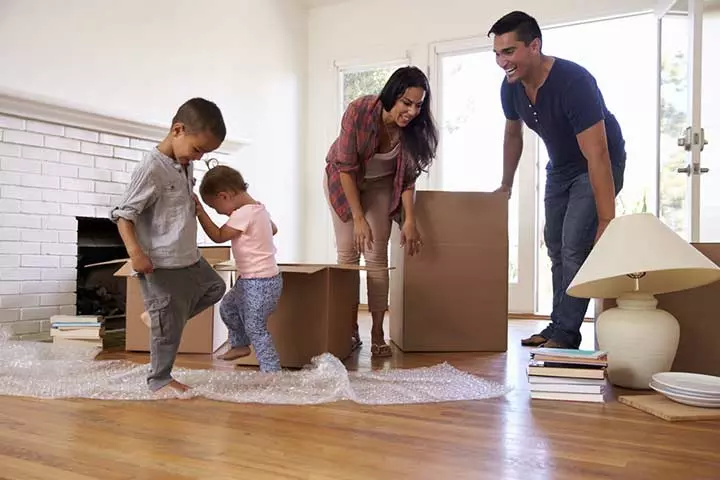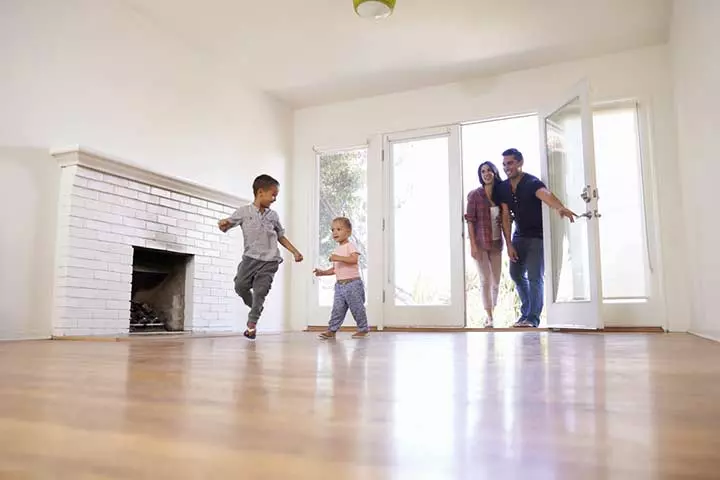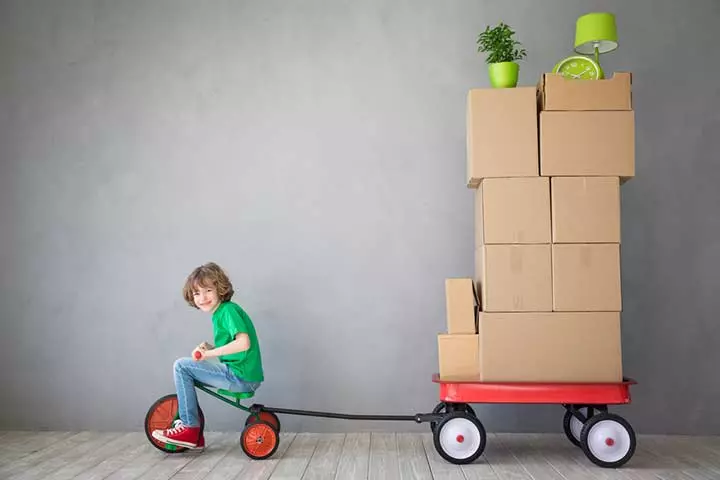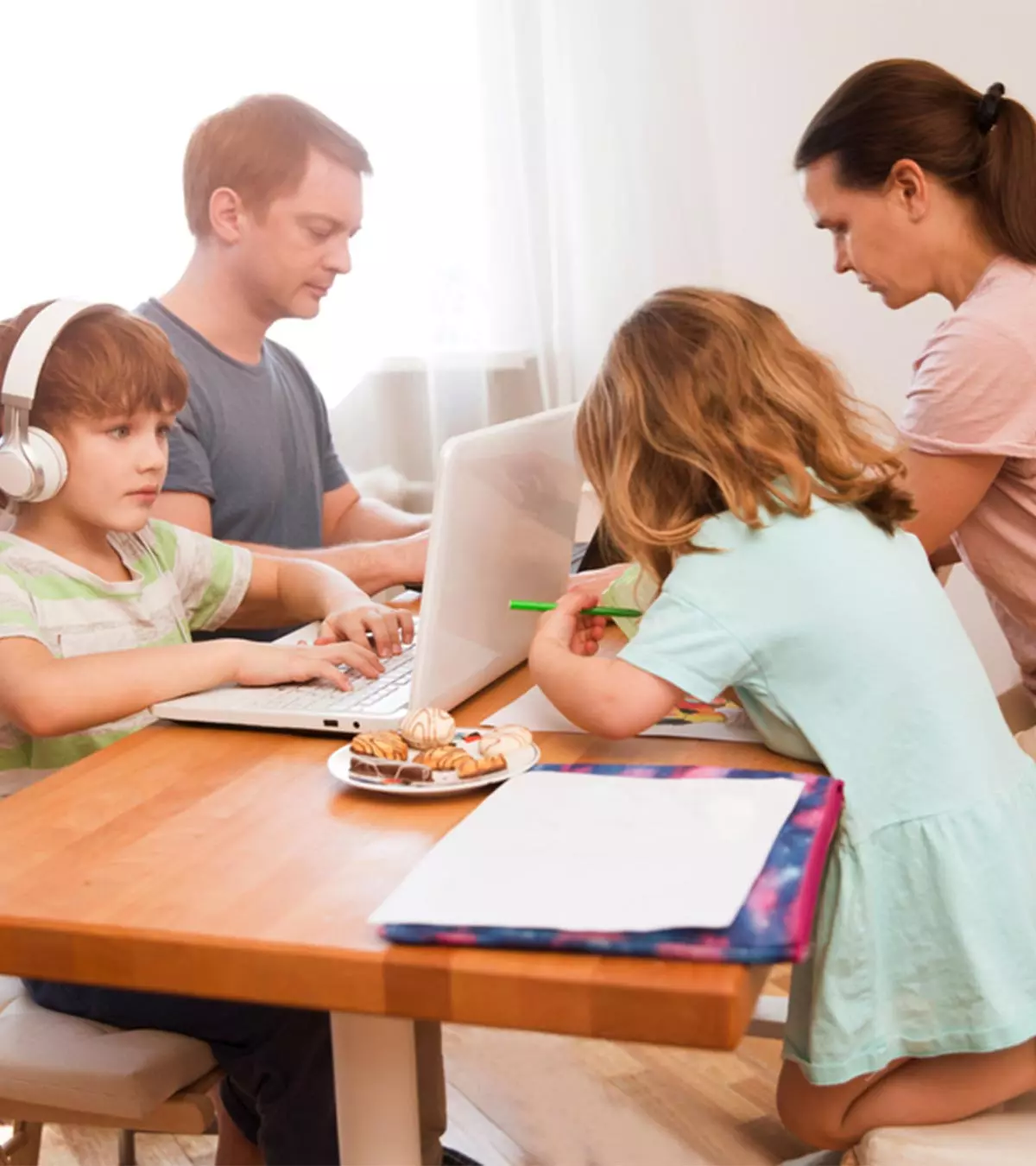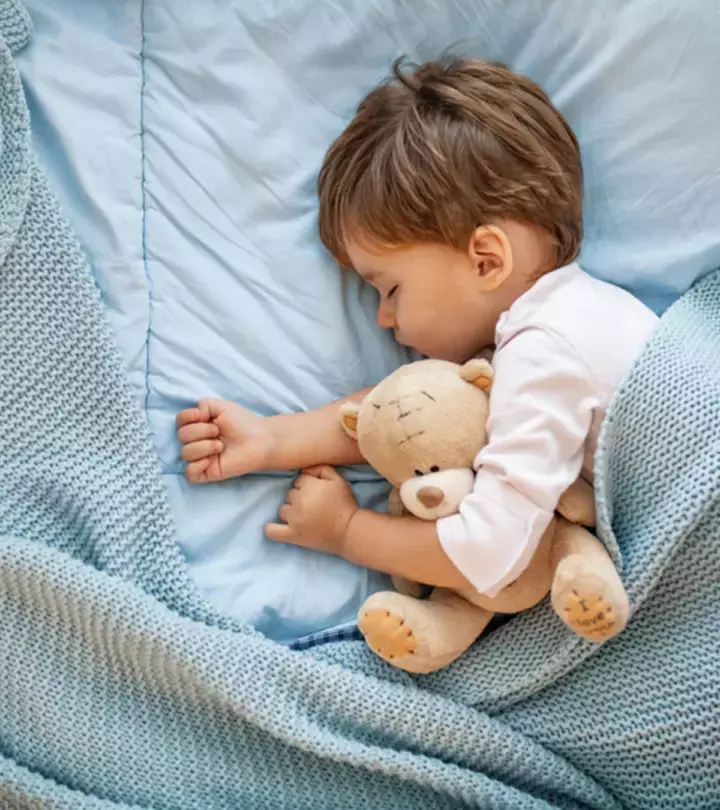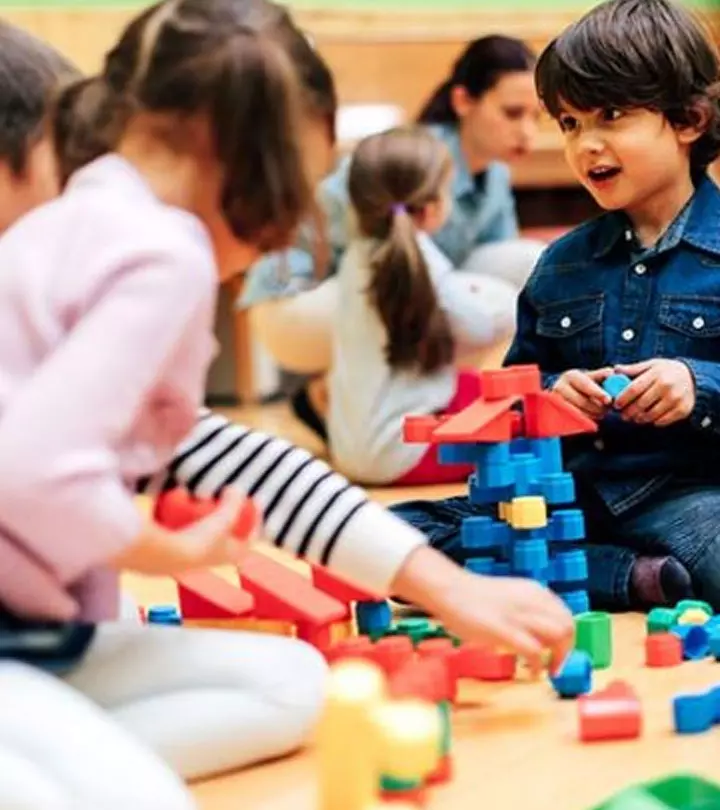

Image: Shutterstock
Change is inevitable, but that does not make it easy. Most of us love familiarity and comfort, and change can be viewed as something unpleasant because of the uncertainty it brings with us. Moving homes is one such activity that most people do not enjoy. Letting go of your friendly neighbors, changing your address, saying goodbye to the lake, parking near your home, and making a home out of your new place are not things that happen quickly. It takes time, effort, and a whole lot of determination to bid farewell to something that served you well.

Moving homes is not for the faint of heart. It’s quite a stressful process for adults, but have you ever stopped to wonder how moving homes affect your kid? Since moving homes disrupts family routines, it causes stress in kids and adults. One study revealed that infants as young as 7 months could identify stressful situations (1). Exposure to frequent family turbulence increases their stress levels because they lack the language skills to understand the situation entirely.
Why Are Babies And Toddlers Affected By Moving?
Image: Shutterstock
Babies and toddlers thrive on daily routine and predictability. Moving houses disrupts these routines and can make them anxious. More so, if your kids are slow to adapt to change and sensitive. One study showed that frequent mobility is linked to low educational achievements (2). Because moving houses does not just stop with moving to a new place—it includes a new room, daycare or preschool, and new friends. Children are removed from familiar environments and experience a breakdown of their social networks, leading to stress and adjustment problems in them.
How Are They Affected?
Image: Shutterstock
Toddlers and preschoolers experience the stress associated with moving the same way adults do, but they lack the language skills to articulate what they feel. However, a few ways in which they might express this uncertainty are:
- Increased clinginess
- Decreased appetite
- Excessive thumb sucking and bedwetting
What Can You Do To Help Your Kids With Moving?
If you have an infant or a baby, a move will be less disruptive because their daily routine is not affected. You could give them their favorite blanket and place them in their crib, and they will be fine. However, with toddlers and preschoolers, the case is different. They have to adapt to change, and it can have an effect on their sleep cycles (3). Therefore, as parents, here are a few things that you can do to ease the transition:
Before The Move
- Keep Them In The Loop
Image: Shutterstock
While you might think it’s a good idea to wait until the last minute to tell your kids, springing the news of them moving into a new environment might not be the wisest thing to do. Your child needs time to process the information and prepare themselves for a big change.
- Show Them The New Space
Image: Shutterstock
Your kid might be dreading the change. Therefore, to build excitement, you could take your child to the new house and give them a tour. Show them their new room, the playground close by, and the ice cream truck that comes in the evening. Familiarizing them with the new space they are going to be in so they do not feel alienated can help them sleep better.
- Get Them Involved
Image: Shutterstock
They might be anxious about the move so involve them in the process. Encourage them to pack up their clothes, toys, and other favorite things so that they feel a part of the process. It might help them feel better.
After The Move
- Make Your Child Comfortable
Image: Shutterstock
Set up your child’s room first. Unpack their toys, clothes, and arrange their cupboards before you get to unpacking the rest of the stuff. Set up your kid’s room, so they are ready and well prepared to sleep in a clean room for the night.
- Keep Things As Normal As Possible
Image: Shutterstock
Moving houses is a big change. For the first month or so, try to maintain a life as normal as possible. Avoid going on family vacations or business trips in the first few months until things stabilize.
Moving is never easy because it involves saying goodbye to your home that keeps you safe and comfortable. It takes time to get that feeling in a new place and can be tough on your kids which can affect their sleep pattern. What struggles have you faced while moving with your children? Comment below and let us know.
Community Experiences
Join the conversation and become a part of our nurturing community! Share your stories, experiences, and insights to connect with fellow parents.


